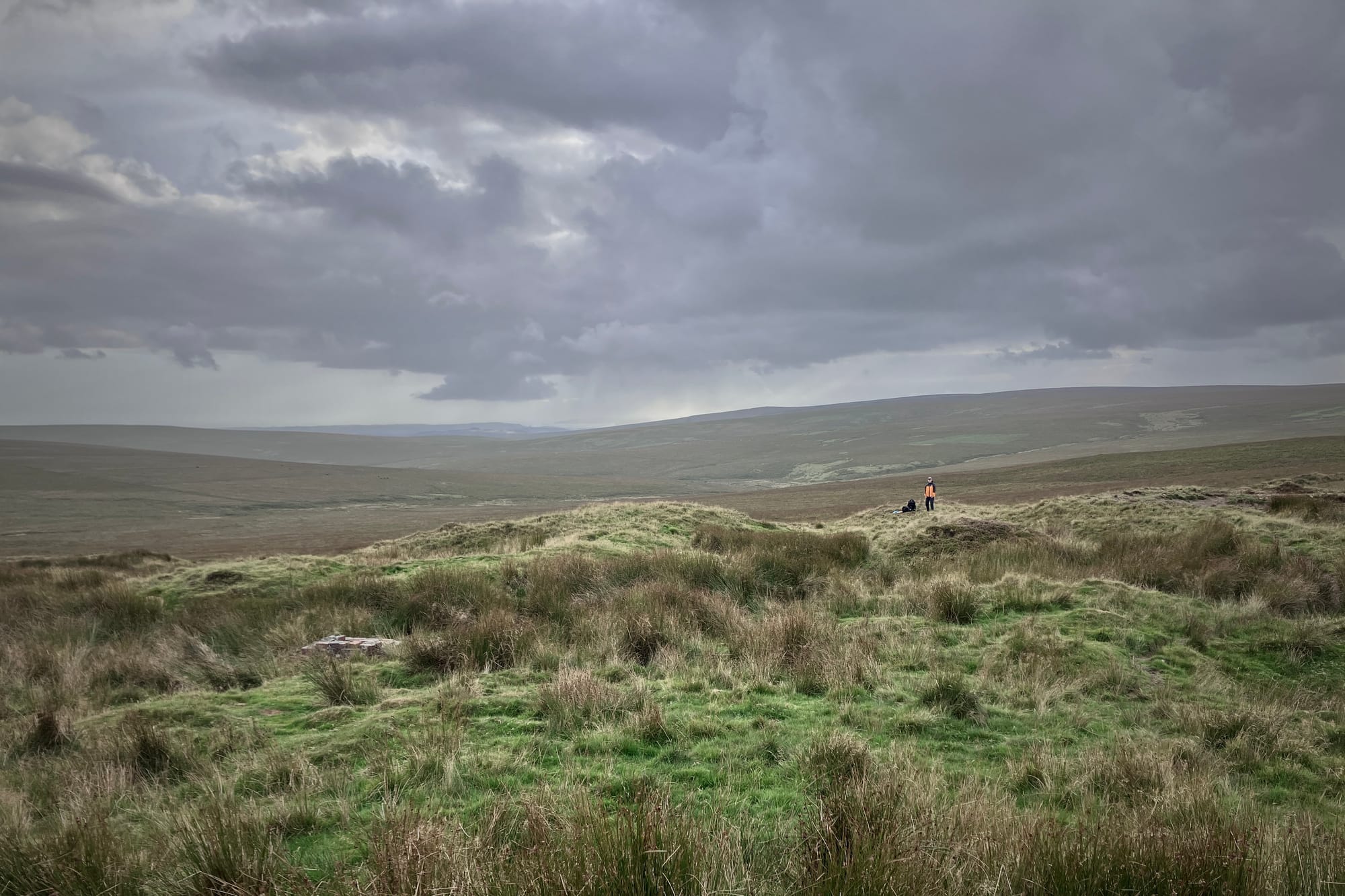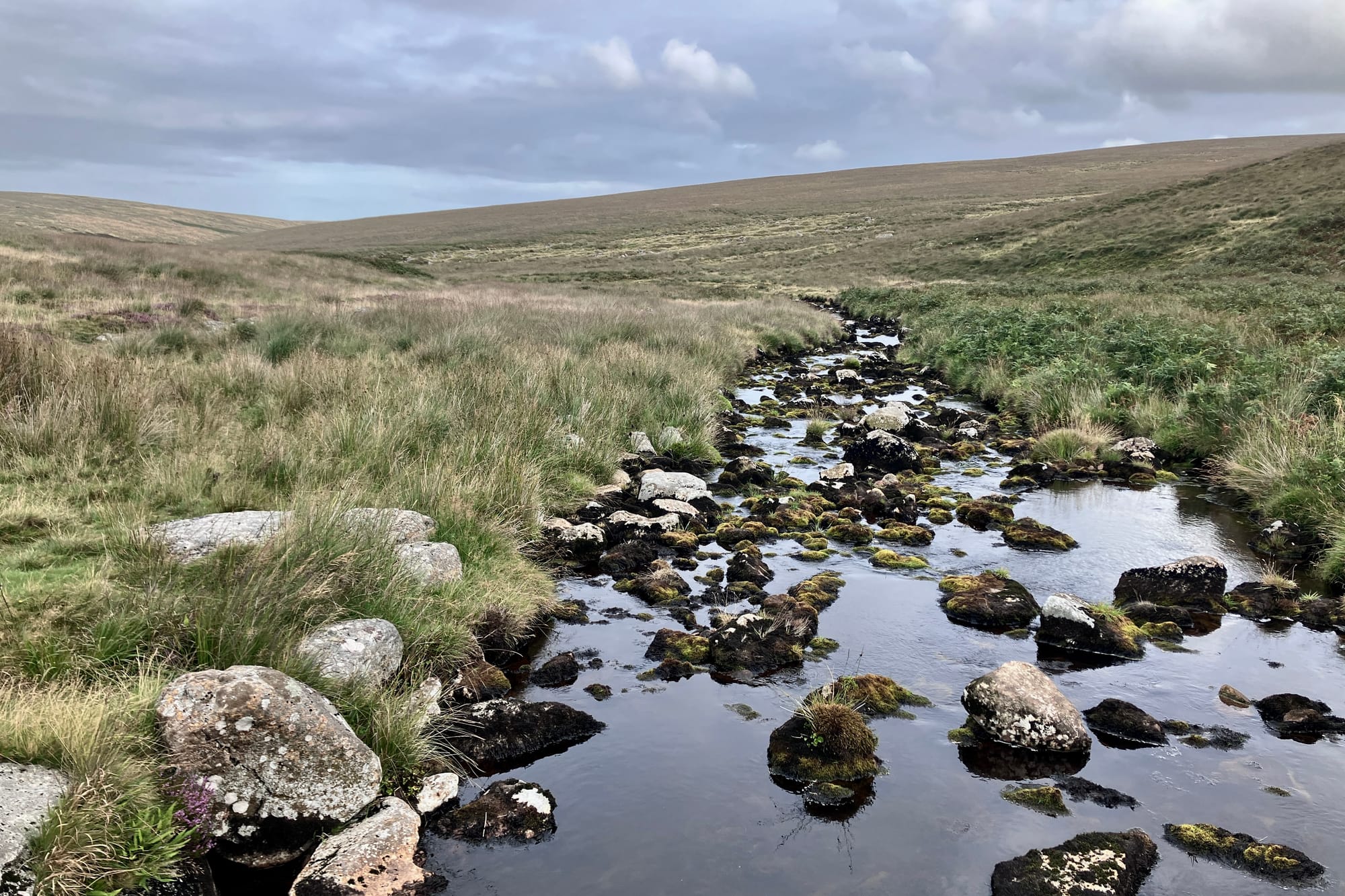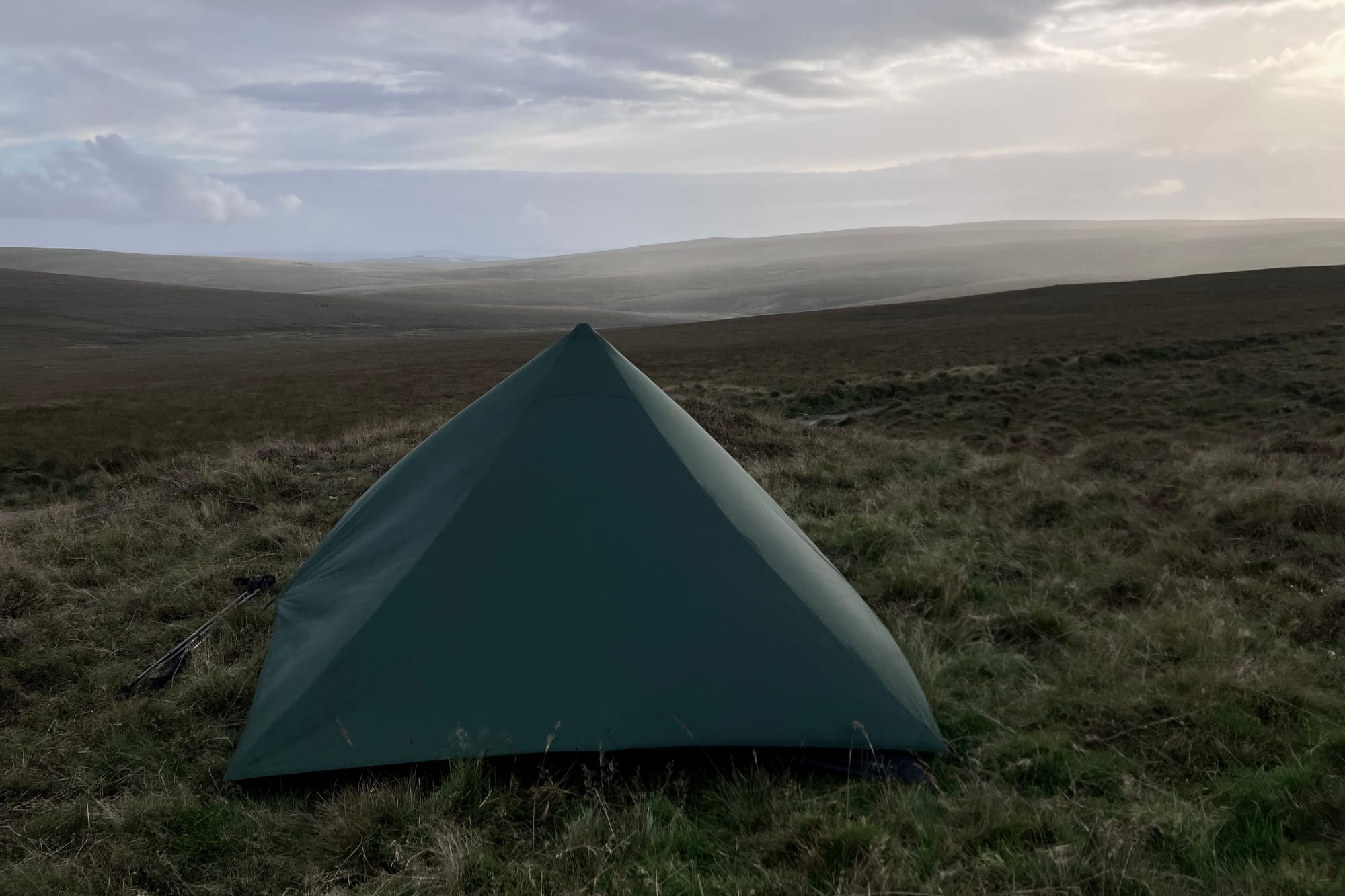Walking with Wulfgar
An annual pilgrimage to Dartmoor takes us past the territory of Brian Carter’s vulpine hero.

Every summer, G and I hike and camp across Dartmoor. This year, we walked between Buckfastleigh and Ivybridge, crossing the River Avon and Wella Brook before climbing high on the moor to pitch for the night and descend the next morning along the old Redlake Tramway.
This is a landscape worked by humans, a place of dams and cairns and clay pits. But when we reached the high point of the walk near Brown Heath, we could see, laid out before us to the north, the territory of another animal: Wulfgar the black fox.
Wulfgar is the hero of Black Fox Running, Brian Carter’s evocative story of this dark-furred creature and his nemesis, Scoble the trapper, in the seasons leading up to the pitiless winter of 1947. Carter’s description of Dartmoor is exquisite, rich in perfectly weighted metaphors and similes:
The hills were hardening in sunlight and all down the valley the grass glinted. The morning air was keen but the purity of light meant real spring. By the powder mill the fields were as bright and green as a fox's eye.
G and I were squeezing our trip into the last of summer, the final two free days of the school holidays. And on the evening of our first day, change was already on the wind that tumbled in from the distant sea and threatened heavy rain in the morning. It looked as though we would go to sleep in summer and wake up in autumn.

Carter’s descriptions of the changing seasons are among my favourite passages in Black Fox Running. The effect of the incoming season on the animals and landscape is so keenly observed that I imagine the author walking the moor for months on end, noting every deflection of the grasses, every flutter of a bird’s wing.
The wind wrote long sentences in the grass and rubbed them out with the next breath. Cold-eyed thrushes spilled from the rowans. Wulfgar sat up on his haunches and watched them go down the coomb, flickering silver and grey. A flock of golden plover wheeled over Seven Lords Lands, then lapwings poured in and settled on the marsh. A calm, frosty night had vanished before a rising gale. The slow editing of the countryside for winter was well under way.
The foxes measure their lives in winters and are lucky if they live through a handful of them. Similarly, I know that childhood summers with G are precious and few. He will be grown soon and busy with his own life. Maybe too busy to walk with his old dad. I will see out my winters remembering our late summer evenings on Dartmoor, searching for a camping spot in fading light.
This is always G’s favourite part of our trips: finding the ideal place to pitch. And this year, we struck gold amid the tall yellow grass: a little way from the tramway, a worked piece of ground provided a small flat area just right for our tent and raised enough to give a distant sea view. We set up camp and ate dinner standing by our tent.

“Why would you camp anywhere else when you can camp here?” asks G as we tuck into our rice pudding. For him, the only way to camp is to backpack camp. It’s hard to disagree. To walk into the wild beyond the reach of roads, carrying your shelter and bed on your back, and sleep alone in acres of emptiness, is a special thing. And this year we slept particularly soundly knowing the highest court in the land had upheld our right to do it.
In spring this year, the Supreme Court threw out an appeal by wealthy landowner Alexander Darwall challenging the legal right to camp wild on Dartmoor – the only place in England where such a right exists. Judges declared that wild camping is open-air recreation and that the 1985 Dartmoor Commons Act does not explicitly exclude camping.
This is where I part ways with Brian Carter. He has sympathy with the hunt and the gentry who afford the foxes ‘a noble death’, whereas I see little benefit to people or nature in the wealthy hoarding land and excluding others. It would be hard to reverse the history of enclosure or clearance that forced people off the land, but we can still give them the right to access it.
England needs its own version of Scotland’s right to responsible access, or Sweden’s allemansrätten. This land was made for you and me, sang Woody Guthrie. It was made for you and me and Wulfgar; for everyone and everything. And we should all be free to roam.

